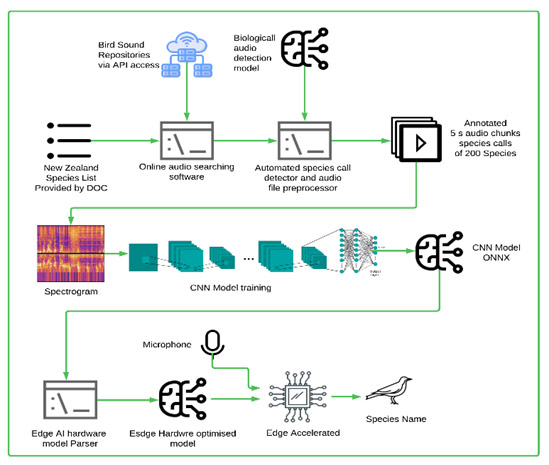KōreroNET: listening to nature
KōreroNET (from the Māori word kōrero, meaning “to speak” or “to communicate”) is a research initiative dedicated to advancing biodiversity monitoring in Aotearoa New Zealand through passive acoustic sensing. The project develops and deploys autonomous acoustic nodes that can detect and track both native wildlife (for example forest birds and bats) and introduced mammalian pests such as rats and possums.
Each node functions independently while remaining part of an adaptive sensor network, with the capability for remote reprogramming. This design supports long-term, large-scale ecological monitoring and makes the system highly flexible for evolving conservation needs.
KōreroNET plays a critical role in informing conservation decision-making, guiding pest management interventions, and enabling more targeted and sustainable pesticide application strategies. The end-to-end research pipeline, ranging from acoustic data collection and machine learning model development to hardware prototyping and field deployment is led by the team at AUT.
This initiative is carried out in close collaboration with national and international partners, including the Department of Conservation (DOC), Zero Invasive Predators (ZIP), and the British Trust for Ornithology (BTO), ensuring that the outcomes are both scientifically robust and directly relevant to on-the-ground conservation practice.
